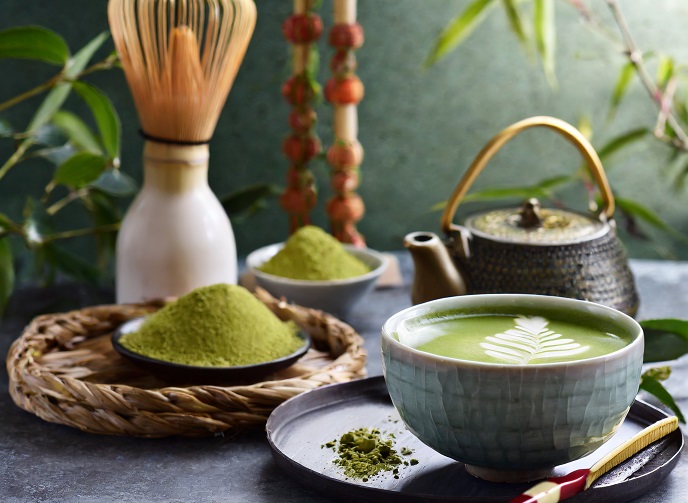Introduction
Matcha tea, a vibrant green powdered tea with roots in the traditional Japanese tea ceremony, has recently captured the attention of health enthusiasts worldwide. In this article, we aim to decode the hype surrounding Matcha and delve into the science behind its touted health benefits. Beyond its cultural significance, Matcha is praised for its rich nutritional profile, high concentration of antioxidants, and potential impact on metabolism and cognitive function.
What is Matcha Tea?
Let’s start by understanding what sets Matcha apart from other teas. Matcha is finely ground green tea leaves, but its production process and unique qualities distinguish it from its counterparts. The traditional Japanese tea ceremony places Matcha at the center, emphasizing the importance of the preparation and consumption ritual. Additionally, there are distinctions between ceremonial and culinary grades of Matcha, each serving different purposes.
Nutritional Profile of Matcha
Matcha boasts a remarkable nutritional profile, with a particular emphasis on antioxidants, especially catechins. These powerful compounds contribute to Matcha’s potential health benefits. Moreover, Matcha contains L-theanine, an amino acid known for its calming effects. We’ll explore how this combination of antioxidants and L-theanine contributes to the tea’s overall appeal and potential health advantages.
Health Benefits of Matcha Tea
- Antioxidant Properties: Matcha is celebrated for its high concentration of antioxidants, which play a crucial role in combating oxidative stress. Antioxidants are essential for supporting the body’s overall health and defending against free radicals.
- Metabolism Boost and Weight Management: The catechins in Matcha are believed to boost metabolism, aiding in weight management. We’ll explore the science behind this claim, shedding light on how Matcha might impact calorie burning and support weight loss.
- Cognitive Function and Mood Enhancement: The unique combination of L-theanine and caffeine in Matcha is said to enhance cognitive function and mood. We’ll delve into the synergy between these two compounds, exploring how they promote mental alertness and relaxation.
Addressing the Hype: Scientific Evidence and Studies
While Matcha’s popularity has soared, it’s essential to differentiate between marketing hype and scientific evidence. We’ll review notable research studies on Matcha’s health benefits, separating fact from fiction. Additionally, we’ll seek expert opinions to provide a balanced perspective on the potential advantages of incorporating Matcha into one’s daily routine.
How to Choose Quality Matcha
Selecting quality Matcha involves understanding grading and quality indicators. We’ll guide readers on how to assess the color, aroma, and texture of Matcha, along with considerations like origin and cultivation practices. By reading labels and avoiding additives or fillers, consumers can make informed choices. Sustainability and ethical sourcing considerations will also be discussed to help readers make environmentally conscious decisions.
Incorporating Matcha into Your Lifestyle
Practical advice on incorporating Matcha into daily life will be provided, from preparing traditional tea to crafting lattes and smoothies. We’ll explore various forms of Matcha consumption and offer culinary uses and recipes for those seeking creative ways to enjoy this green elixir. Additionally, we’ll discuss recommended daily intake and address potential side effects.
Common Myths and Misconceptions
Several myths surround Matcha, such as concerns about its caffeine content and misconceptions about weight loss and detoxification. We’ll debunk these myths, clarifying the facts and ensuring readers have accurate information to make informed decisions. Addressing potential lead contamination concerns will also be a crucial part of dispelling misconceptions.
Personal Stories and Testimonials
To add a personal touch, we’ll share anecdotes from individuals who have experienced health benefits from incorporating Matcha into their routines. Readers will gain varied perspectives on the real-life impact of Matcha, encouraging them to share their own experiences and engage with the community.
Conclusion
In conclusion, Matcha tea stands out not only for its cultural significance but also for its potential health benefits supported by scientific evidence. By understanding its nutritional profile, debunking myths, and exploring practical ways to incorporate Matcha into daily life, readers can make informed choices that align with their health and wellness goals. As we decode the hype surrounding Matcha, let’s embrace the vibrant world of this green tea and its potential positive impact on our overall well-being.

